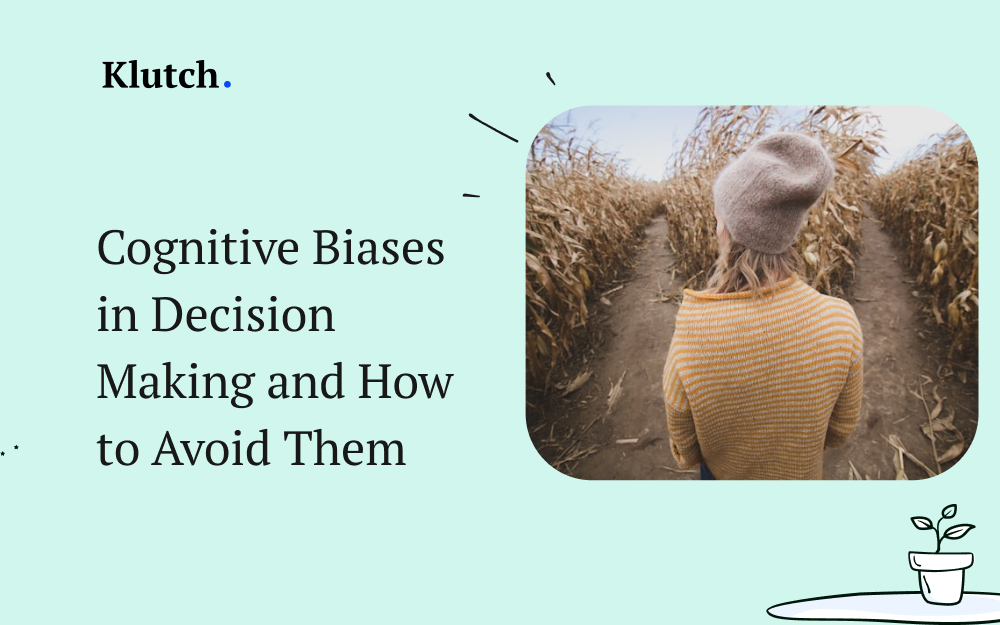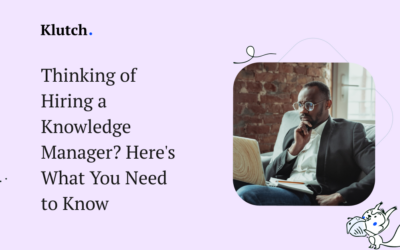Although many people don’t know it, our brain often uses some shortcuts to make processing information more straightforward.
Those mental shortcuts are cognitive biases, and while they are not uncommon, they could cloud your judgment. If you want to make accurate decisions that are not biased by anything, you need to get rid of cognitive biases. Doing that is not easy at all.
Are you looking forward to learning more about cognitive biases and how to identify them?
This is the page for you, so keep reading to know more about the matter.
Here, you can find out how to notice your cognitive basis and some information about this brain process.

Signs of Cognitive Biases
Noticing you have specific cognitive biases is not simple, but it’s something you can do if you know how to detect the signs of cognitive biases.

Although we are all different people, these signs are common among most people, so you may get at least one of them.
Here are some of the most common signs of having cognitive biases:
Assuming You Are Always Right
Most people think this is always a matter of ego, and even if it is, it’s a clear sign of having a cognitive bias. When you think you are always right, it may be because your brain is ignoring anything that tells you that you may be wrong.
Thus, any information against your will or opinion is deemed untrue. It’s complex to go through this filter if you haven’t noticed it, and people who get it often don’t since they like the illusion of always being right when talking to other people or making decisions.
Regardless of that, this is dangerous to anyone who often needs to make decisions since all their decisions will be based on that filter.
Apart from that, it will be difficult for that person to improve in any aspect of their lives because they won’t ever have any feedback.
Nevertheless, believing you are always right is not always something that makes you feel good. People can also think they are always right but think bad things about themselves, and since no one can prove them wrong, it takes a toll on their self-esteem and confidence.
When you think like this and only think you are right, you often look for signs that confirm your opinions.
Even if you do it on a subconscious level, your brain searches for news and new pieces of information that help you verify anything you think and, therefore, have proof that you are right.
Blaming Others When Things Don’t Go Your Way
Assuming you are at fault for something that happened is not simple, and it could get worse depending on the severity of what happened. However, some people know everything was their fault even though they don’t say anything to you.
The problem here is people who start blaming others when things don’t go their way. Even if something is not anyone’s fault, they will look for something that gives them a reason for what happened that is not that painful for themselves. People get desperate when they don’t understand something, and that’s when cognitive biases start to work.
Although you can think it’s your fault, it’s more common for cognitive biases to tell you other people are, since not many like how being at fault for something means. Therefore, since your brain doesn’t want to go through the feeling of being wrong, it simply blames others.
Behaving like this can cause people several problems in their personal life since no one likes to be blamed for things they didn’t do.
Hence, it’s ideal for anyone who notices this to start working on it as much as they can.
Not Recognizing Other People’s Success
Cognitive biases often tell us that we are the main focus of the world and that things outside our life are irrelevant. Even if you don’t directly think that cognitive biases make you believe it on a subconscious level.
If you think you are the center of the world, you may feel jealous of people who achieve things you can’t. It’s highly difficult for these people to understand why something would achieve something without their help, so they think it’s all luck or due to external circumstances.
On a related matter, people who get this cognitive bias don’t understand when they lose something or when things don’t go their way, and if they don’t blame others as we mentioned earlier in this article, they say it’s all due to bad luck or external circumstances they could’ve never controlled or prevented.
This becomes problematic when you start working at a company since knowledge management and human resources can become a bit messy.
Fortunately, things get easier if you start using a knowledge management solution.
Visit Klutch if you want to know some other tips that could make working easier for you!
Common Types of Cognitive Biases

There are different types of cognitive biases, and each of them could jeopardize your project management skills differently. Therefore, it’s best for you to not only understand you have a cognitive bias clouding your thinking but also notice the type of bias you have to know how to avoid it.
You can’t get rid of or overcome all cognitive biases the same way, and while one method can be useful for a specific type of bias, it may also be useless for another one.
Do you want to know the most common types of cognitive biases?
Here they are:
Confirmation Bias
Remember when we talked about how only looking at news or information that confirms our beliefs is a sign of having a cognitive bias? That’s what we call confirmation bias.
As its name suggests, it consists of tending to look for information that tells you that you are right or that confirms your opinion.
This filter doesn’t only make us focus on information that confirms our beliefs but also makes us ignore data that would prove us wrong regardless of how strong that information is.
If you have a confirmation bias, we recommend you start talking to people with a different point of view than yours or who can prove you wrong.
As we mentioned before, having a confirmation bias is not always something that tells you positive things about yourself and your judgment. While many people with confirmation bias are happy because no one can prove them wrong, others feel sad because they think bad things about themselves and don’t believe people who tell them the opposite.
That’s one of the most dangerous parts of having a confirmation bias since it could lead to other things, such as depression or at least feeling bad these days.
Anchoring Bias
Having an anchoring bias is often confused with a confirmation one since both include ignoring many pieces of information or saying they are wrong even though they are right. What happens here is that people believe the first piece of information they receive, but they don’t believe in anything that gets to them later.
If someone told another person the sky is red, that person would believe them. Even if it’s clear the sky is not red, they would think it’s always red because of what the other person said.
As you could see, even if future information proves what you heard is not true, you will believe what you first heard was right. If you can’t keep following the main idea you had before, you are at least not going to feel comfortable with the other one.
This is something dangerous to face for a project manager who has to make a decision based on different options since, even if one of them is better than the others, they may want to stick with the first one they studied or analyzed.
In-Group Bias
In-group bias is one of the most interesting cognitive biases on this list due to how it can change your decision-making depending on where you are and the people you are with.
When people say in-group, they mean this cognitive bias is related to becoming attached to a specific group of people.
That group of people can include bad crews, schools, or any other place important to us. This cognitive bias activates when you are with a group you trust or care about, which leads you to believe anyone who becomes part of that group is a good person or at least as right as you are.
Therefore, you won’t believe people coming from other groups is right and will ignore information that tells you so. Even if the people you don’t think have proof that tells you what they say is true, you may not believe it at all.
This can happen to you if you are a project manager since it’s common among people within the same friend group, company, team, or family. However, check the signs of cognitive biases we mentioned before to confirm if you have this issue or if there’s no need to worry about it.
Many think this won’t be an issue since there’s no problem in always staying with the same company if you are a project manager, but things don’t work that way. You need to be aware of the flaws of your business to overcome them, but you can’t do that if you don’t know them.
If your company, for example, has too many meetings, and that is taking a toll on productivity compared to other companies, you need to know that is happening if you want to solve it. However, you won’t do anything about it if you don’t think that’s an issue, which will lead to several issues in the future.
Tips to Overcome Cognitive Biases
There are many ways to overcome cognitive biases, and while it’s easier said than done, it’s still something you can do if you put an effort into it. The first thing you need to do to overcome cognitive biases is to be aware of them.
Try to always think about the signs we mentioned here and see if you may be showing one of them. You can also ask your friends or family members if they think you show one of those signs since they can study your behavior more objectively.
If you already know you have at least one sign of this happening, the next step is to look for something that may be causing this cognitive bias. Is there any situation that could make you believe you are always right? Maybe you can solve it if you know it.
Compare your current behavior to how you were before and the things that changed from that time. As humans, we tend to follow some patterns that make us make the same mistakes again over time, so identifying that pattern helps us break it.
Try looking for evidence you don’t like that proves that the information you have is not true since that will make your brain used to not being right all the time. Intellectual humility is essential for this matter, and it’s the best way to fight cognitive biases.
Prospero is excellent for evidence since it shows you registered reviews of professional studies. Check it out if you think it can help you!
Conclusion
It’s not uncommon to have cognitive biases, and all humans can suffer from this problem. Regardless of that, what makes us different is how we face those issues and overcome them.
Many people spend all their lives ignoring their decision-making skills that are clouded by a filter, but you don’t have to make the same mistake.
One of the best ways to face cognitive biases is to know there’s still room for improvement, so if you are a project manager, we recommend you read some blog posts from Klutch since they tell you how to improve your project management skills.



